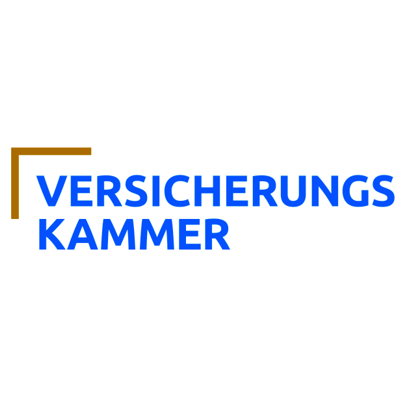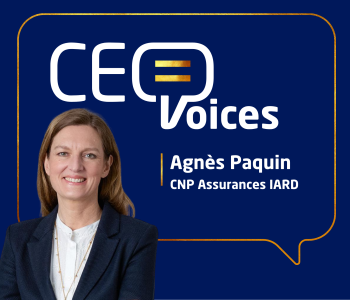„Digital transformation is permeating all aspects of our operations“
Professor Dr. Frank Walthes
Since 2012, Professor Dr. Frank Walthes has served as Chairman of the Management Board of the Versicherungskammer Group. He also holds the position of Honorary Professor for Strategic Transformation in Financial Services at the University of the Federal Armed Forces in Munich. In addition, he has been Chairman of the Board of the German Vocational Training Centre for the Insurance Industry in Munich since 2016.


About the Versicherungskammer Group
Founded in 1811, the Versicherungskammer Group ranks among the ten largest primary insurance providers in Germany. The Group comprises eleven insurance companies, including the regional brands Versicherungskammer Bayern, Feuersozietät Berlin Brandenburg, and SAARLAND Versicherungen, which collectively hold approximately 30% market share within their respective regions.
As a member of the Sparkassen-Finanzgruppe, the Versicherungskammer Group operates as a public insurer and actively engages in partnerships across the domains of prevention, security, and social welfare. A pioneer in technological advancement, the Group adopted data analytics and artificial intelligence early on to drive innovation.
Summary
Demographic change is one of the primary forces shaping digital transformation. “This is why we must harness both the tacit and explicit knowledge shared through new collaborative working models such as smart working,” emphasizes Professor Dr. Walthes. The capacity to analyze vast datasets and extract actionable insights is becoming a critical competitive advantage, with artificial intelligence playing a central role. Furthermore, the ongoing consolidation within the German insurance market presents new strategic opportunities.
Interview between Dr. Martin Seibold, Partner at Sollers Consulting, and Professor Dr. Frank Walthes, Chairman of the Management Board, Versicherungskammer Group
Dr. Martin Seibold: Professor Walthes, what have been the most significant technological developments in the insurance industry over the past 25 years, and how have they influenced the business operations of the Versicherungskammer Group?
Professor Dr. Frank Walthes: Over the past quarter-century, digital transformation has profoundly reshaped the insurance sector, including our operations at the Versicherungskammer Group. I recall the internet bubble of the early 2000s (1), which marked a turning point in the digitalisation of insurance processes. Since then, we have adopted a cross-functional, interdisciplinary, and cross-hierarchical approach across all levels of the organisation, focusing on applications, processes, and structural optimisation.
In 2014, we initiated a comprehensive digitalisation programme aimed at enhancing internal processes and improving efficiency across all areas of operation. A key priority from the outset was the advancement of customer relationship management. For instance, as early as a decade ago, we employed IBM Watson to detect emotional cues in customer correspondence.
A further milestone was the establishment of our Innovation Campus in 2018. Through an internal pitch process, we are able to rapidly assess and implement innovative ideas originating from our specialist departments and employees. Concurrently, our in-house research lab develops concepts and drives them forward to the prototype or minimum viable product (MVP) stage. Today, under the umbrella of our Group-wide initiative go. Innovation for all, we have cultivated a robust culture of innovation that underpins our transformation efforts.
One notable example of technological advancement is our cloud-based pricing engine, which has significantly enhanced rate development—particularly in motor insurance—enabling us to respond more swiftly to market dynamics. We have also achieved considerable progress in claims management through the deployment of technologies such as drones in property insurance and digital tools in the agricultural sector.
Dr. Martin Seibold: Why is investment in digitalisation more critical today than ever before?
Professor Dr. Frank Walthes: Ludwig Erhard (2) once identified technological progress—driven by human creativity and the diversity of ideas—as a key determinant of economic success. This perspective remains highly relevant today. To remain competitive and develop sustainable, future-oriented solutions, it is imperative that we continue to invest in digital innovation—both to meet evolving customer expectations and to ensure economic viability. The demographic shift we are currently experiencing further underscores the urgency of this investment. As the baby boomer generation retires, we are unable to replace this workforce on a one-to-one basis. This makes it essential to leverage technological advancements in the workplace through digitalisation. In this context, the utilisation and sharing of both tacit and explicit knowledge through new collaborative working models—commonly referred to as smart working—becomes increasingly important.
Our commitment to innovation extends beyond the boundaries of our organisation. Since co-founding the InsurTech Hub Munich in 2017, we have actively contributed to shaping the digital transformation of the insurance industry in the region. Through close collaboration with technology firms, start-ups, academic institutions, and investors, we aim to foster effective innovation and ensure the long-term resilience of our industry.
" The demographic shift we are currently experiencing further underscores the urgency of this investment "
Dr. Martin Seibold: Professor Walthes, your approach reflects a strong commitment to innovation and value creation. Let us now turn to current global challenges. In light of the numerous geopolitical, economic, and ecological issues facing the world today, which do you consider most critical from the perspective of the Versicherungskammer Group, and how are you addressing them?
Professor Dr. Frank Walthes: We are currently experiencing an unprecedented convergence of transformative global developments. From a geopolitical standpoint, I consider the establishment of a new European security architecture to be of utmost importance. Europe must possess the strength and resilience to assert and defend its interests—either independently or in concert with other liberal democracies. Equally pressing are the consequences of climate change, which demand robust responses such as reliable flood protection and proactive measures to mitigate the impact of extreme weather events. In this regard, we fully endorse the proposals of the future German federal government to allocate substantial investments over the coming decade toward infrastructure, security, and climate resilience. Furthermore, the regulatory landscape has evolved significantly, with a marked increase in complexity over the past decade. Regulatory frameworks such as DORA and Solvency II exemplify this trend. In response, we are prioritizing the development of effective compliance management systems and fostering constructive collaboration with supervisory authorities. Our overarching objective is to streamline administrative processes while maintaining full regulatory compliance.
Dr. Martin Seibold: Looking ahead, what developments do you believe will most significantly shape the insurance industry over the next 25 years, and what are your expectations for the future of the Versicherungskammer Group?
Professor Dr. Frank Walthes: Artificial intelligence and automation will remain central to the industry's evolution. The ability to process and interpret large volumes of data will continue to be a decisive competitive advantage. In parallel, the current geopolitical realignments will lead to a reconfiguration and diversification of capital investment strategies. On a broader scale, Germany’s socio-economic trajectory will be determined by how effectively we manage demographic change and reform our social systems. As the elderly become the largest demographic group, their needs will increasingly influence both political and societal agendas. In this context, enhanced capital funding for healthcare, long-term care, and pensions will be essential—not only to ensure financial sustainability for younger generations but also to stabilize our social infrastructure. The insurance sector is uniquely positioned to offer reliable and forward-looking solutions in these areas.
Dr. Martin Seibold: Versicherungskammer has been a pioneer in the application of artificial intelligence within the insurance sector. Is this leadership position something you intend to maintain? What role do you foresee for emerging technologies such as AI, IoT, and quantum computing in the future of insurance?
Professor Dr. Frank Walthes: Technology will undoubtedly remain a cornerstone of innovation in our industry. We are already leveraging AI in areas such as claims and risk management to support data-driven decision-making. Moreover, we have implemented a secure, enterprise-grade GPT solution tailored to our internal needs. Currently, we are developing an intelligent knowledge assistant—a chatbot powered by an advanced language model that retrieves relevant information directly from our VKBrain knowledge management system in natural language, complete with source references. Digital transformation is permeating all aspects of our operations and is increasingly integral to our customer service offerings. Examples include digital health services for policyholders, AI-based leak detection for claims prevention, and real-time risk monitoring and big data analytics enabled by IoT technologies.
Dr. Martin Seibold: We are witnessing a growing trend of consolidation in the German insurance market, including portfolio transfers and mergers. What developments do you anticipate in the coming years, and what role will the Versicherungskammer Group play in this context?
Professor Dr. Frank Walthes: Indeed, we are observing a marked increase in consolidation activities within the German insurance sector, which we view as presenting new strategic opportunities. We are actively monitoring the market, remain open to potential engagements, and are prepared to act when appropriate. However, any decision to submit a binding offer will be made only after thorough analysis and careful consideration.
(1) At the beginning of the 2000s, following an internet boom with large investments in so-called dot-com companies, there was a massive slump in the capital markets.
(2) Ludwig Erhard was a West German economic politician in the 1950s and 1960s.
CEO Voices Interviews










Share Your thoughts

